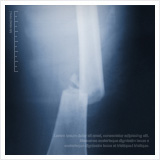
The cause of osteonecrosis of the jaw, one of bisphosphonates' major drug complications, has been linked to genetic reasons, medical experts say, citing recent medical research. This finding might help explain the controversy surrounding the multi-district litigation on the disorder. How this will influence the lawsuits such as the ones involving osteonecrosis of the jaw or Fosamax cases on femur fractures in New Jersey still remains to be seen.
Bisphosphonate medications are the most popularly prescribed medication for bone fragility and preventing the spread of some bone cancers. There are currently three million women taking bisphosphonates for the prevention and treatment of osteoporosis.
Osteonecrosis of the jaw is one of the most controversial complications associated with bisphosphonates such as Fosamax. It has been the basis for many lawsuits, resulting in a multidistrict litigation process that still goes on today. One of the points of contention over these lawsuits and the basis for this study is that there is hardly any definite evidence to track how often osteonecrosis of the jaw occurs in people taking bisphosphonates. Estimates have varied from 1 in 1,000 to 1 in 100,000 patients in a year, lacking any clear consensus. For those taking intravenous bisphosphonates as much as an estimated 5 to 10 percent of cancer patients are affected every year.
According to previous studies, genetic factors may be involved in a significant capacity in determining how osteonecrosis of the jaw occurs in patients. The research team determined from the study involving 30 individuals who developed osteonecrosis of the jaw while using bisphosphonates and those who were free of the complication while still taking bisphosphonates.
The researchers believe that they have linked the development of osteonecrosis of the jaw to a variance of the RBMS3 gene. People with variances in this gene were found to be 5.8 times more likely to develop “dead jaw” syndrome. The researchers also found that small variances in the IGFBP7 and ABCC4 genes also contribute to the risk of developing this same bone jaw complication.
If you are interested in learning more about osteonecrosis of the jaw and bisphosphonates you can read more about the topic in blogs online. If you have suffered or survived a complication from taking Fosamax, you can learn all about filing a Fosamax femur fracture lawsuit online.
URL Reference:
medilexicon.com/medicalnews.php?newsid=241114